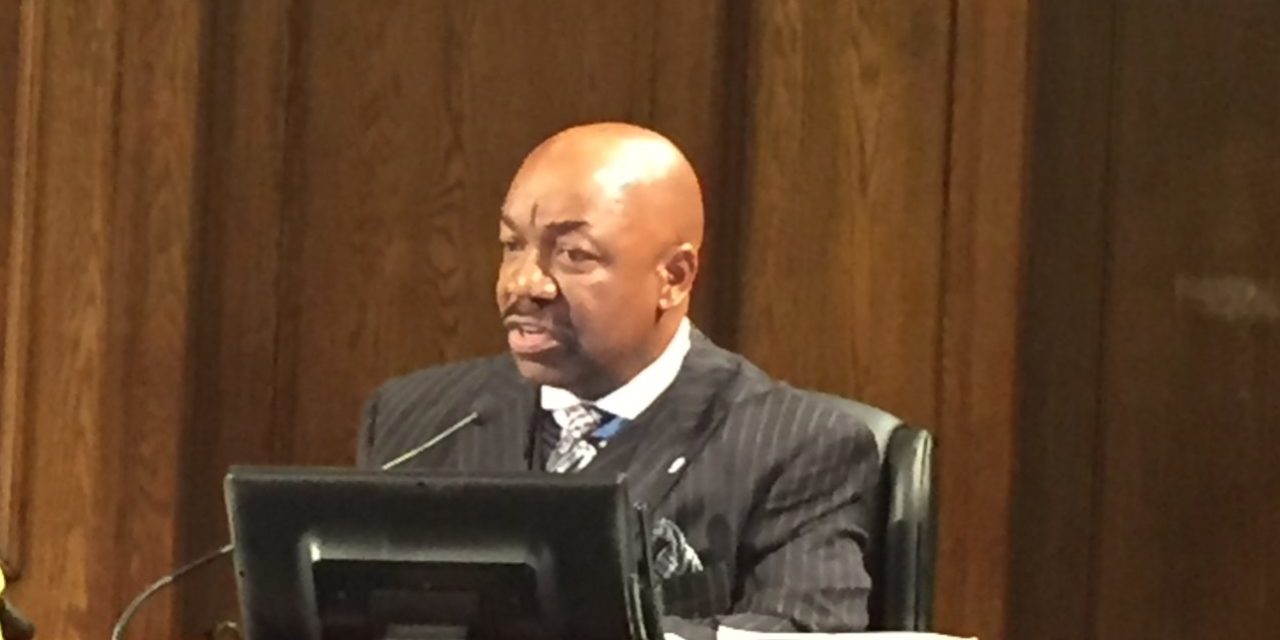On Tuesday, Nov. 3, the Guilford County Board of Commissioners turned from red to blue, but Guilford County Commissioner Skip Alston wasn’t blue at all about what that meant for his prospects.
The chairman of the Board of Commissioners is elected by fellow commissioners and the chairman is always the same party as the majority of the board. And now that the Board of Commissioners will be controlled by a Democratic majority for the first time in eight years, the stage is set for Alston to be the board’s chairman again.
“Yes, I am interested,” Alston said this week after the election that radically transformed the board.
Alston not only likes being chairman – he loves it.
He was the first African-American chairman the board ever had, and he’s been chairman five times – and counting.
Alston said that he first needed to see if any other Democrat wanted the job, however, the other Democrats on the board don’t seem like real possibilities for one reason or another – at least not in the time of COVID-19. Democratic Commissioner Kay Cashion said this week that she has absolutely no desire to be chairman. Democratic Commissioner Carolyn Coleman has been attending almost all meetings virtually during the pandemic and it would be hard to run a meeting while not there. Commissioner Carlvena Foster has never seemed interested in the job and it’s virtually unheard of for brand new commissioners to take the chairman job.
The Board of Commissioners will elect a new chairman at its first meeting in December and several sources high up in Guilford County government said that it was almost a certainty that Alston would be the board’s next chairman.
The chairman of the Board of Commissioners is sometimes referred to as the “mayor of the county” because he or she is the highest-ranking elected leader in the county government and has the highest public profile of any of the nine commissioners.
Though the chairman only gets one vote like the other commissioners, he or she runs the meetings, has a lot of say over what items go on the board’s agenda and frequently speaks on the board’s behalf at public events. He or she also makes $24,300 a year, which is higher than the usual commissioners’ salary of $20,700.


Skip can run a meeting. He does love the spotlight. Other than that, mama said if you can’t say something nice, don’t say anything at all.
Skip knows the county and makes a point to have a positive presense at relative events. Prior to covid 19 I would see him everywhere .He is a kind and wants to see Guilford County prosper. We are lucky that he is willing to serve his community. Thank you Skip for supporting the mask mandate.
Of course he’s “interested”. Power corrupts, absolute power corrupts absolutely.
The only rooster in the henhouse. Skips’ kind of game. He loves being a bully and loves being in the spotlight.
Proves that you get what you vote for.
Tighten up your mama “Taxes are going up,up,up”.The first order of business is to elect Skip -chairman,Then get out of the way because he’s got Green in his eyes..Spending YOUR monetary way he can.If you think the city cousins bad ,Skip is ‘badder’.
Will you explain where duplicity is in my remarks!!!!!!!!!!
Dream on . We the people are know you are all about spending money not your money but other people’s money and we are not going to vote for that …..